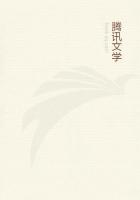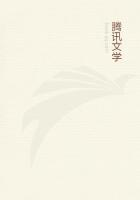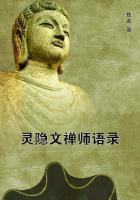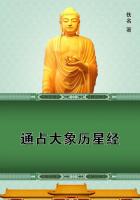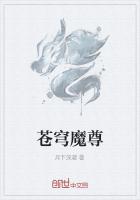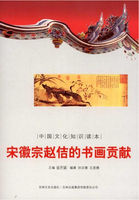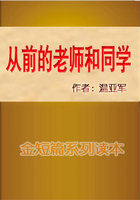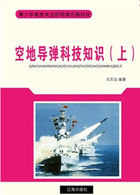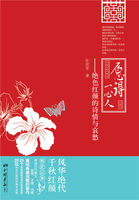I have observed, with pleasure and thankfulness, in the pages of various reviews and treatises, that the spirit of profound and thorough investigation is not extinct in Germany, though it may have been overborne and silenced for a time by the fashionable tone of a licence in thinking, which gives itself the airs of genius, and that the difficulties which beset the paths of criticism have not prevented energetic and acute thinkers from making themselves masters of the science of pure reason to which these paths conduct- a science which is not popular, but scholastic in its character, and which alone can hope for a lasting existence or possess an abiding value.To these deserving men, who so happily combine profundity of view with a talent for lucid exposition- a talent which I myself am not conscious of possessing- I leave the task of removing any obscurity which may still adhere to the statement of my doctrines.For, in this case, the danger is not that of being refuted, but of being misunderstood.For my own part, I must henceforward abstain from controversy, although I shall carefully attend to all suggestions, whether from friends or adversaries, which may be of use in the future elaboration of the system of this propaedeutic.As, during these labours, I have advanced pretty far in years this month I reach my sixty-fourth year- it will be necessary for me to economize time, if I am to carry out my plan of elaborating the metaphysics of nature as well as of morals, in confirmation of the correctness of the principles established in this Critique of Pure Reason, both speculative and practical; and Imust, therefore, leave the task of clearing up the obscurities of the present work- inevitable, perhaps, at the outset- as well as, the defence of the whole, to those deserving men, who have made my system their own.A philosophical system cannot come forward armed at all points like a mathematical treatise, and hence it may be quite possible to take objection to particular passages, while the organic structure of the system, considered as a unity, has no danger to apprehend.But few possess the ability, and still fewer the inclination, to take a comprehensive view of a new system.By confining the view to particular passages, taking these out of their connection and comparing them with one another, it is easy to pick out apparent contradictions, especially in a work written with any freedom of style.These contradictions place the work in an unfavourable light in the eyes of those who rely on the judgement of others, but are easily reconciled by those who have mastered the idea of the whole.If a theory possesses stability in itself, the action and reaction which seemed at first to threaten its existence serve only, in the course of time, to smooth down any superficial roughness or inequality, and- if men of insight, impartiality, and truly popular gifts, turn their attention to it- to secure to it, in a short time, the requisite elegance also.
Konigsberg, April 1787.
INTRODUCTION
INTRODUCTION.
I.Of the difference between Pure and Empirical KnowledgeThat all our knowledge begins with experience there can be no doubt.
For how is it possible that the faculty of cognition should be awakened into exercise otherwise than by means of objects which affect our senses, and partly of themselves produce representations, partly rouse our powers of understanding into activity, to compare to connect, or to separate these, and so to convert the raw material of our sensuous impressions into a knowledge of objects, which is called experience? In respect of time, therefore, no knowledge of ours is antecedent to experience, but begins with it.
But, though all our knowledge begins with experience, it by no means follows that all arises out of experience.For, on the contrary, it is quite possible that our empirical knowledge is a compound of that which we receive through impressions, and that which the faculty of cognition supplies from itself (sensuous impressions giving merely the occasion), an addition which we cannot distinguish from the original element given by sense, till long practice has made us attentive to, and skilful in separating it.It is, therefore, a question which requires close investigation, and not to be answered at first sight, whether there exists a knowledge altogether independent of experience, and even of all sensuous impressions? Knowledge of this kind is called a priori, in contradistinction to empirical knowledge, which has its sources a posteriori, that is, in experience.
But the expression, "a priori," is not as yet definite enough adequately to indicate the whole meaning of the question above started.For, in speaking of knowledge which has its sources in experience, we are wont to say, that this or that may be known a priori, because we do not derive this knowledge immediately from experience, but from a general rule, which, however, we have itself borrowed from experience.Thus, if a man undermined his house, we say, "he might know a priori that it would have fallen;" that is, he needed not to have waited for the experience that it did actually fall.But still, a priori, he could not know even this much.For, that bodies are heavy, and, consequently, that they fall when their supports are taken away, must have been known to him previously, by means of experience.
By the term "knowledge a priori," therefore, we shall in the sequel understand, not such as is independent of this or that kind of experience, but such as is absolutely so of all experience.Opposed to this is empirical knowledge, or that which is possible only a posteriori, that is, through experience.Knowledge a priori is either pure or impure.Pure knowledge a priori is that with which no empirical element is mixed up.For example, the proposition, "Every change has a cause," is a proposition a priori, but impure, because change is a conception which can only be derived from experience.

